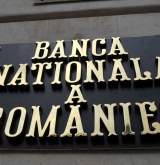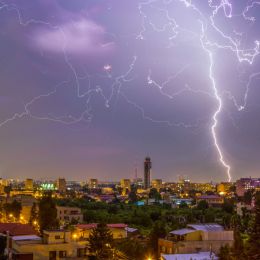Currently Vienna Stock Exchange runs a good ongoing co-operation regarding the global distribution of BVB data over its hub. Furthermore, Vienna Stock Exchange runs together with BVB a common index - ROTX which serves as underlying for structured products.
Ladies and gentlemen,
one of the lessons of the crisis has been the one that we should pay more attention to capital markets. Europe’s economies will have now and in the future to utilize financial markets much more than they did in the past. Not only will companies will deal more with financial markets in a professional manner but also stock exchanges will have to organize themselves in the best possible manner in order to cope with general expectations.
Stock exchanges are more than ever today crucial for the market economical development of a country. I have in mind the important role of the BVB for the national and international investment into Romanian companies. This fact becomes especially visible in the case of privatization of public holdings.
An example would be the upcoming sale of 9.84 percent of OMV Petrom. Such a Secondary Public Offering is likely to put shares into the hands of many diverse shareholders. This fact may make BVB even more attractive. BVB can become more liquid, more private and institutional investors will come forward.
Another factor will be the development in Romania of viable energy exchange institutions. Their mission is to establish a national market for energy products and to organize international trading. Only active electricity or gas exchanges will care for a transparent and market conform formation of prices for sources of energy. That again would be a precondition for private investments in these domains.
Take for example EXAA the Austrian Energy Exchange. Today EXAA spot trading includes on the Energy Spot Market more than 65 electricity traders from over 14 countries.
I agree with Ambassador Gittenstein, that economic growth in Romania needs a reliable energy supply as well as supporting infrastructure, and that the energy sector will require significant amounts of new investment if the sector is to be a driver for Romania’s recovery. Equity markets can play a critical role in attracting investment from here and abroad.
Let me take at this point a quick glance back. Austria has over the last 20 years supported Romania’s progress from the early transformation stage through to fully developed market structures. Austrian investments and support have been helpful for Romania to become fit for EU membership. Austria also supported Romania’s EU membership.
This very dynamic development, underpinned by far-reaching reforms in Romania, moved Austria to the top of the list of this country’s foreign direct investors. Yet is also a fact that the further influx of investments has stalled. Romania should get out of this stagnation. Stagnation and a backlog of true reforms, to withhold political decisions on systems and basic arrangements is simply dangerous in this situation.
Yet good advice to Romania by the EU, International Financial institutions as well as coming from friendly nations has been put on the table.
The French Ambassador in Bucharest Henri Paul and French trade institutions have presented just a few days ago a “White Book on Energy” which advocates 10 measures for improving the Romanian energy sector. We should all be very grateful for the work that French and Romanian expert put into this book. It deals about reducing energy intensity where it is to high compared to international standards and about combating waste of energy. Alternative sources of energy need to be supported wisely.
The whole set-up will need foreign investors. One of the key recommendations for that is to set up in Bucharest an energy exchange, a “burse de energie”.
For example, the Romanian gas market is characterized by the fact that three quarters of the gas in the country comes from own sources. The home produced gas is sold at a widely different price than imported gas. Therefore mechanisms should be in place which lead to a transparent and non-discriminatory access to cheap gas. There is also EU internal market legislation waiting to be implanted into Romanian law.
All this calls for market oriented solutions. I would add this should be done by developing further marked economy structures, including by privatizing those state entities which are still under political influence.
Already Ambassador Gittenstein has said from this place that just to “rearrange the deck chairs on the Titanic” would not be enough, that is to reorganize state-owned energy companies into two “national energy champions,” instead of exploring full or partial privatization options, is not only an inefficient use of valuable resources, but would also crowd out private investment.”
I would add, if we want to attract more than big institutional investors to contribute capital, for example Romanian businesspeople and citizens, a good national stock exchange is indispensable. If strategic national enterprises be opened to citizens as stock holders, the country needs an efficient national stock exchange which cares for small investors. Listings at international big stock exchanges are important for professional investors, but for individual citizens, the national stock exchange is most important.
This is also true for energy exchanges, maybe even more truely here, because the understanding for objective, transparent and market-driven formation of prices still needs to be developed in times of liberalizing state-held energy enterprises. In Romania, as in other countries as well, the efficiency of the national energy industry must be enforced by way of liberalization and privatization. All those daily reports about ongoing plans to half-heartedly unbundle the electricity industry into future private entities and still state-owned parts have internationally met much bewilderment and critique. It has cost Romania some confidence. Romania has in particular in the energy sector an enormous potential, which however has not been developed properly because the necessary free-enterprise conditions have not been established. Who would like to invest in a sector which is politically determined? No, we should give shareholders and those who would like to become ones the chance to go to an energy exchange, we need the privatization of state entities, we need new capital to flow into new Romanian energy production and new distribution facilities.
So I come back to the point of an objective market place for sources of energy in the shape of an energy exchange. There has been an initiative on the table for some time already, coming from Austria, to use the experiences with the Austrian energy exchange EXAA for a swift and cost-efficient implementation of a national Romanian energy exchange. I am therefore very happy to see here with us today Mr Hansjörg Tengg, chairman of the supervisory board of EXAA and CEO of SMART technologies. He is the promoter of exactly this initiative.
I follow the ongoing debate whether a fair establishment of energy prices would lead to higher costs for consumers. I think this argument ignores economic reality. The method of conducting social policy at the expense of enterprises weakens the enterprises, it discourages investments, kills jobs and economic dynamism. So, this policy leads to stagnation and hinders economic development. Both EU and IMF know very well why they insist so strongly on their recommendations to the Romanian politicians.
Yes, social compensations must be put in place during the transition towards marked prices. The point is that they should be financed in conformity with the system by political redistribution within a successful economy.
I am not just delivering these suggestions. Austria itself is one of the countries that has been learning all this by doing. Austria knows how difficult it can be to move from state to market orientation. 25 years ago, we had in Austria the whole big industry and indeed the energy industry completely nationalized. That sector was a political football, permanently depending on subsidies and certainly free of dividends. Also in Austria, only the dictate of the empty cash box and later EU directives pushed us onto the way of far-reaching privatization and liberalization. This path led Austria to the top positions of successful industrialized states. Austria is a middle sized nation, it has no hegemonial ambitions. The Austrian economy is looking out for areas of cooperation for its growth. This is why so many Austrian entrepreneurs have come to Romania and to other central and eastern European States. Both Austrian managers and Austrian politicians have first hand experiences how it is to move from a primarily state controlled economy to modern social market economy.
Partnership with Austrian companies can certainly mean partnership at eye level as well as entrepreneurial and politico-economic know-how transfer.
Let us make more use again of these experiences in order to further strengthen the fruitful austro-romanian relationship. Let us combine forces in order to push the Romanian economy up to a truly European level.
Citeste si:
Calculator Salariu: Află câți bani primești în mână în funcție de salariul brut »
Te-ar putea interesa și:


















































































![HR [PLAY] Tech Workout - 11...](https://www.wall-street.ro/image_thumbs/thumbs/973/x973fe0a3888d417feff63de42e814180-260x260-00-65.jpg,qv=1714132730.pagespeed.ic.8JsqLrmwPf.jpg)









